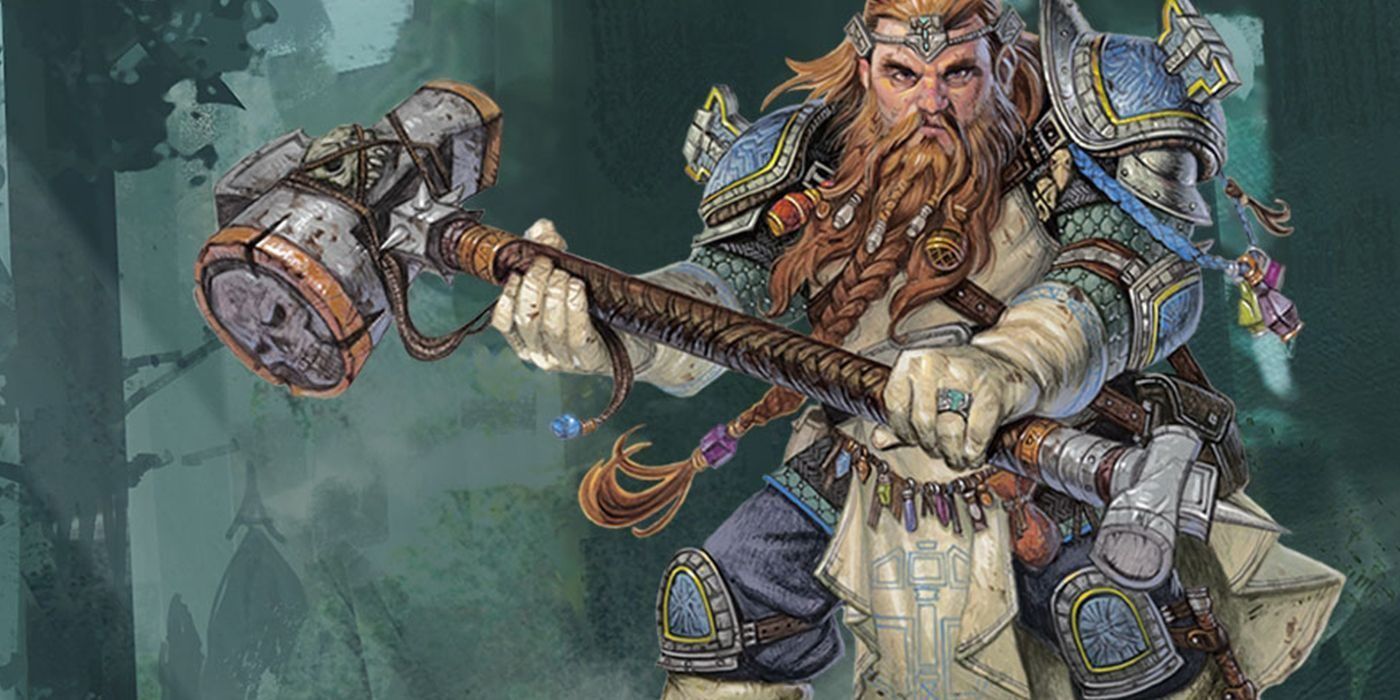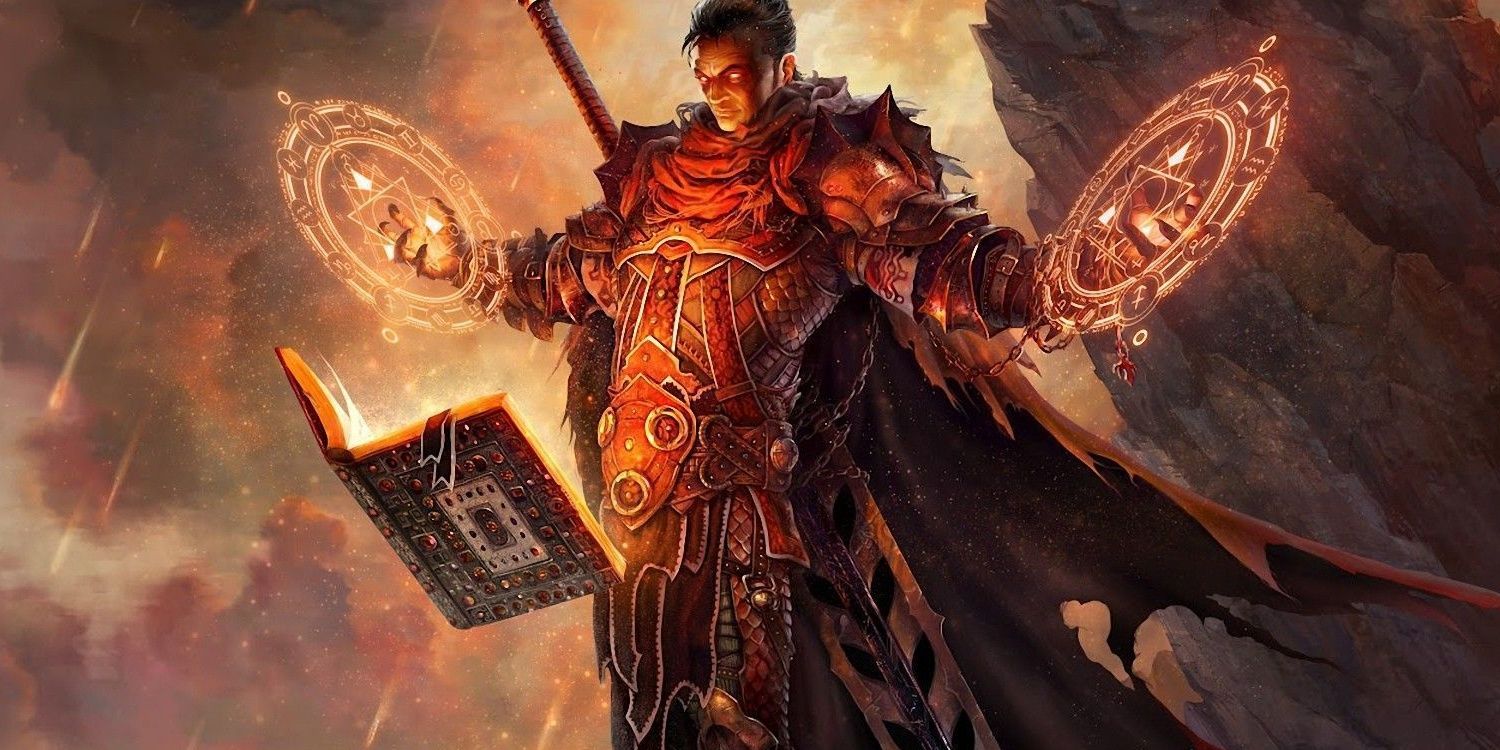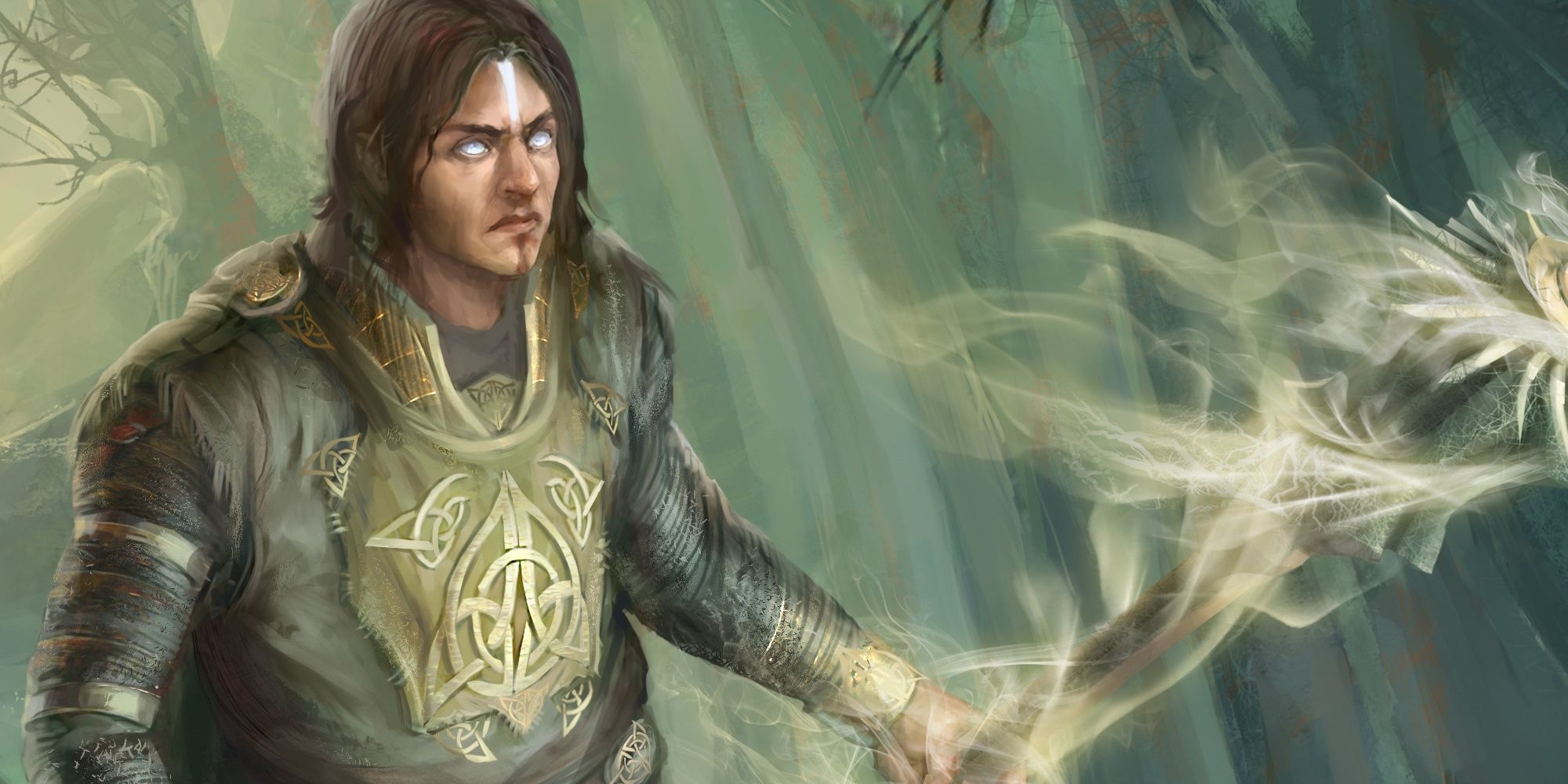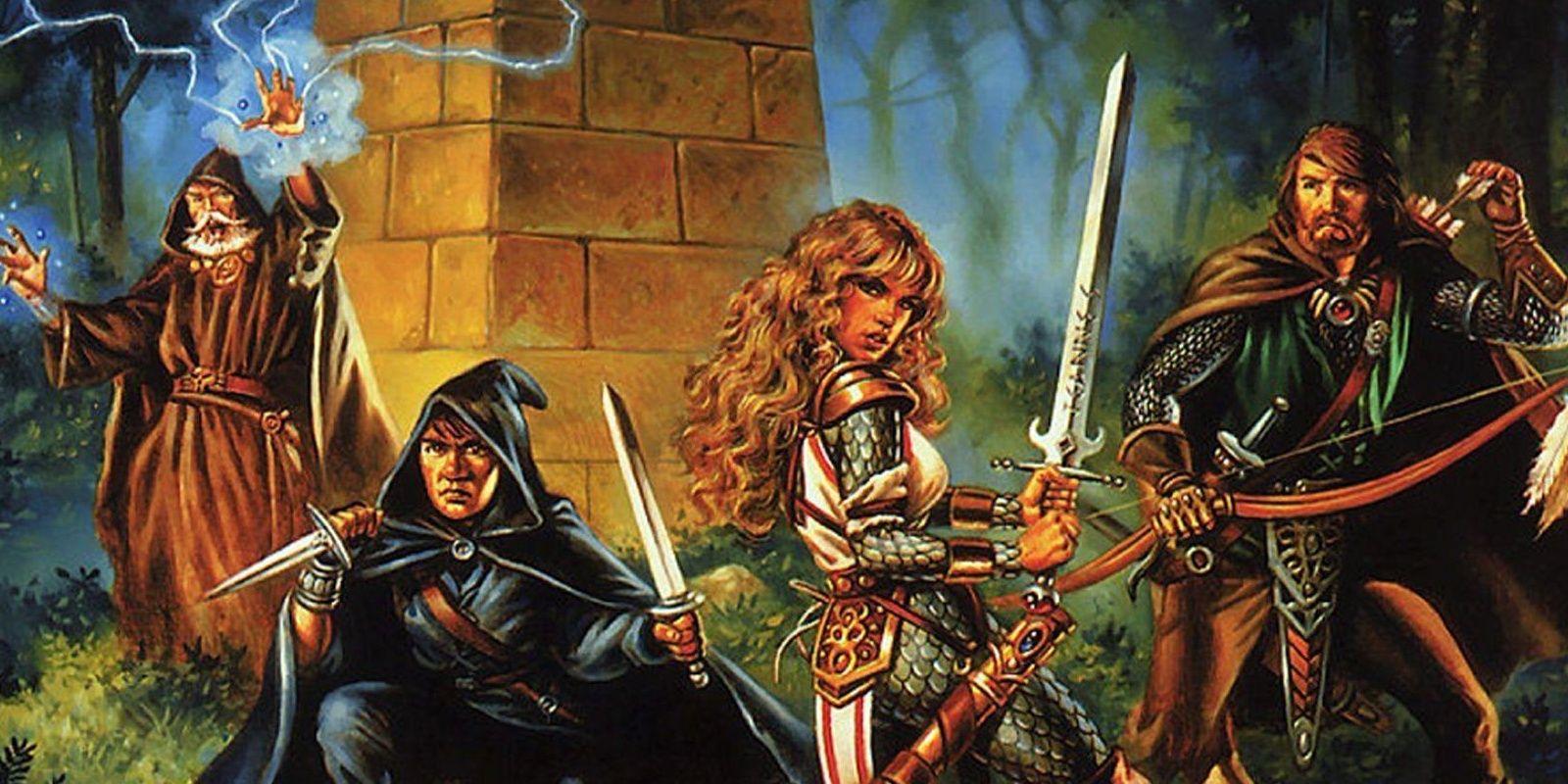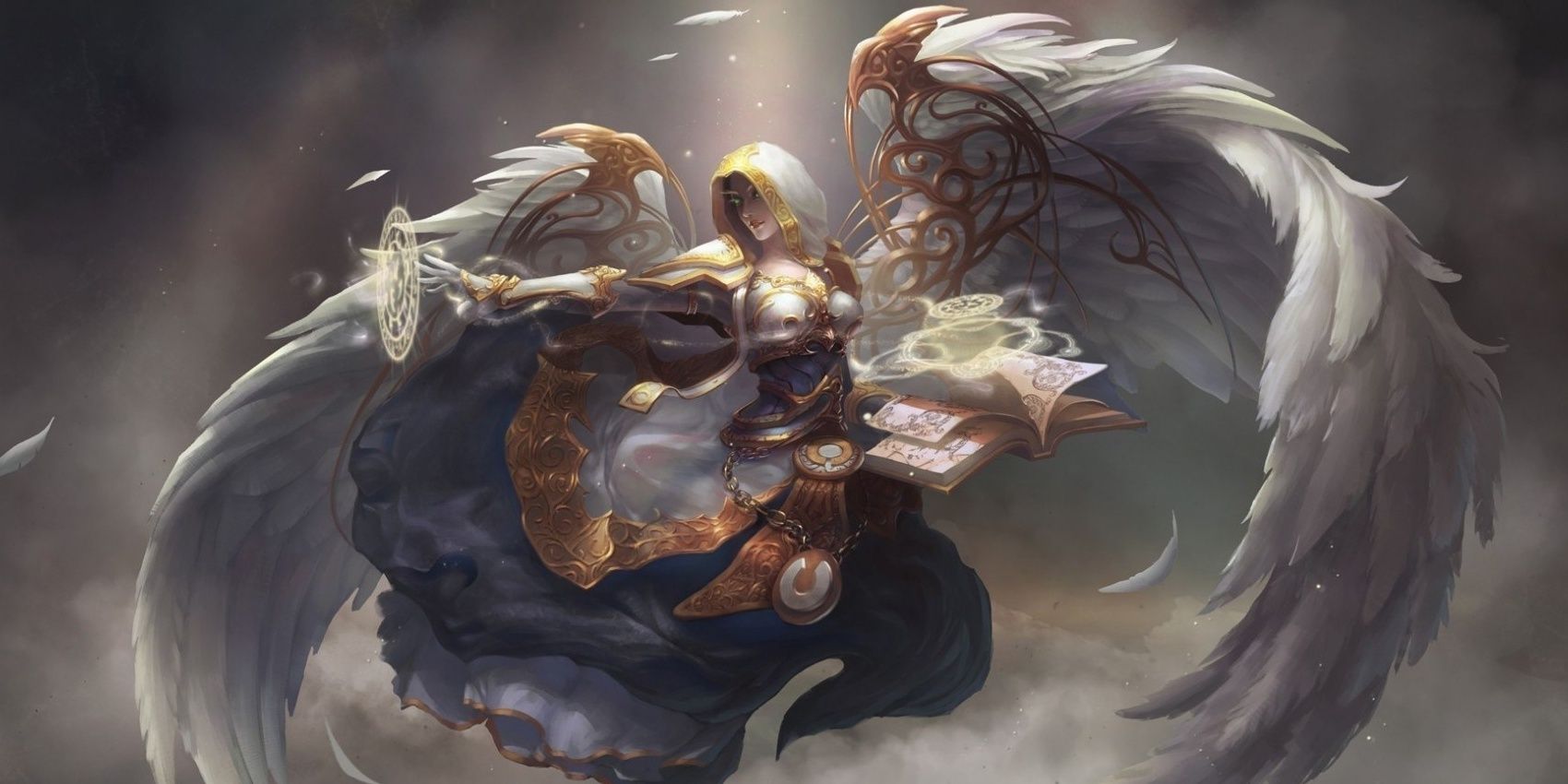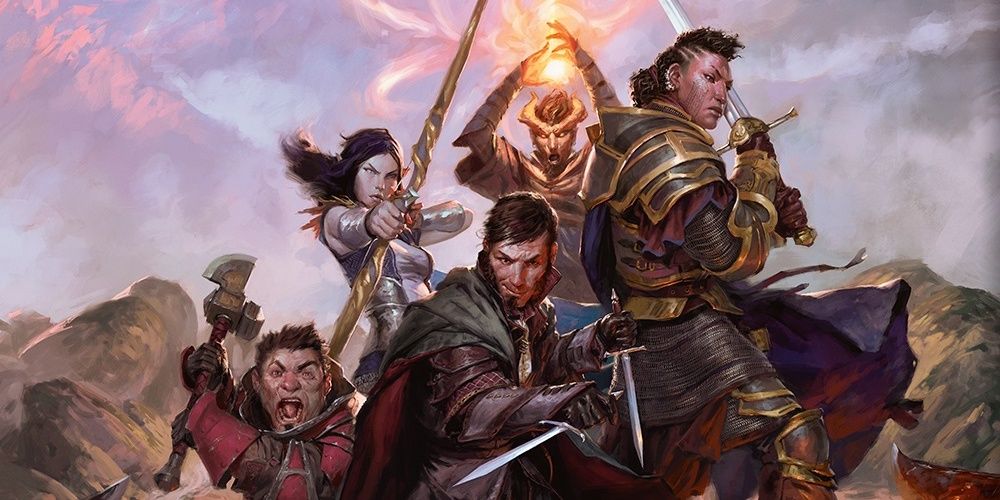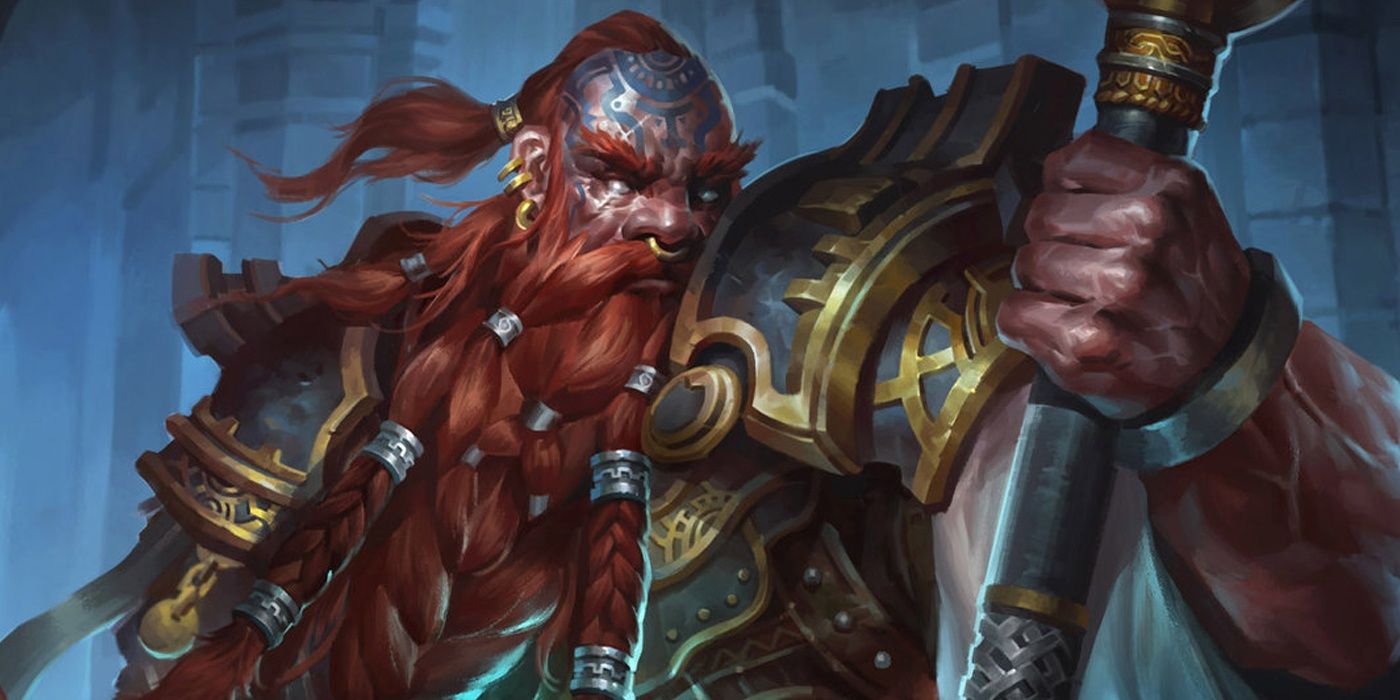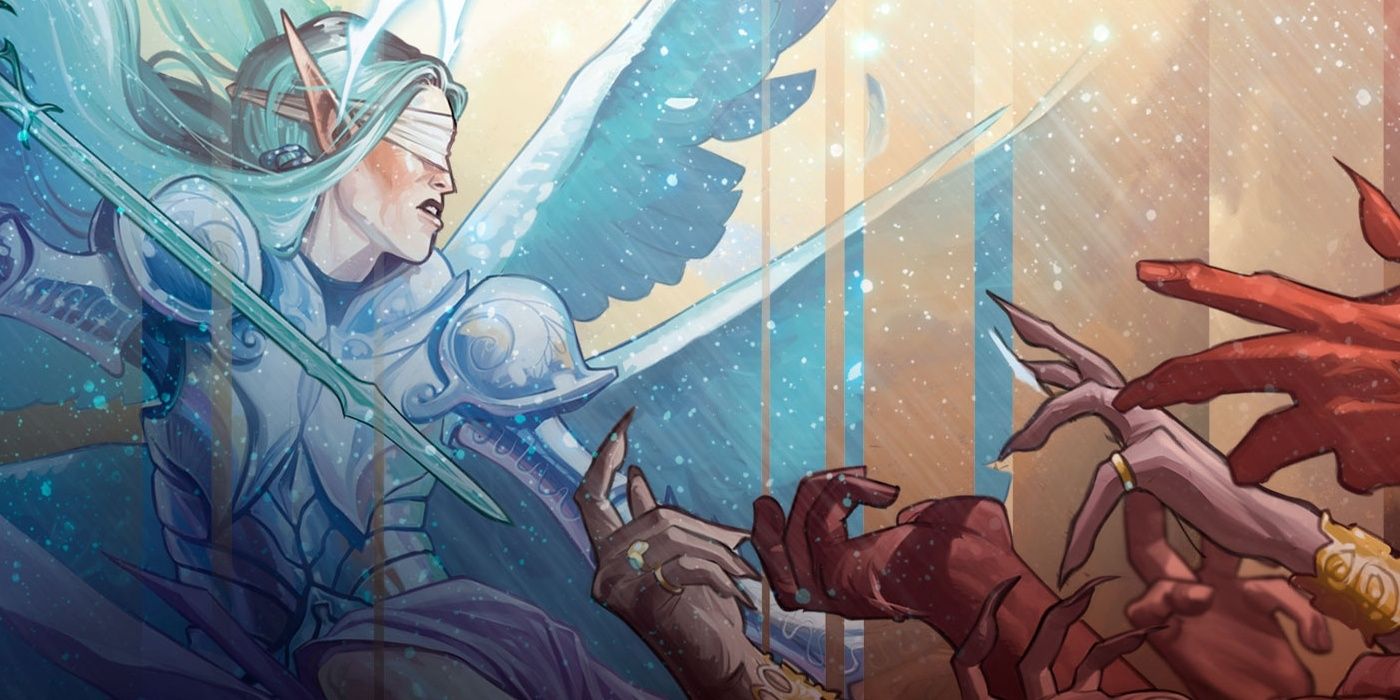Clerics in D&D can be immensely powerful and have access to a massive array of spells, weapons, armors, and backgrounds. With all that's available to them, it is sometimes be difficult to decide what to do in a session as a cleric.
Worry not though, as there are things you're capable of doing that are undeniably good and will have your team chanting your name by the end, and this list will tell you exactly what those things are. There is, however, a certain sense of caution which you must have, as there are some other actions which will invariably turn the table against you, and will have the GM saying "rocks fall, everyone dies" before the next session ever begins. Without further delay, here are the 5 dos and 5 don'ts that every Cleric in Dungeons & Dragons must know.
10 DO: Heal Your Team Members
Without a doubt the best thing you can do constantly and consistently well is healing as a Cleric. With the level on spell Cure Wounds you're able to dish out tons of heals early on, and you only get more powerful with spells like Prayer of Healing and Mass Healing Word.
In those clutch fights where your tank only has two hit points and you're about to lose to a pack of goblins, the Cleric can jump to action, bringing life back to the tank and giving one or two of the goblins a good wallop, saving the party and crowning you a hero to the team.
9 DON'T: Be A Knowledge Cleric
Clerics, like most other classes in D&D, can specialize into certain "schools," one such specialization being the Knowledge Cleric. Knowledge Clerics rely on knowledge based abilities such as Identify or Confusion to help confound enemies or identify magical tendencies.
The issue arises in that being a Knowledge Cleric makes your main casting modifier intellect rather than wisdom, which severely impacts most of your abilities. This type of cleric heals less, damages less, and contributes less, and is essentially a bad combination of Wizard meets Cleric, and will likely not be wanted at the table.
8 DO: Be A War Cleric
Unlike Knowledge Clerics, War Clerics are useful in almost any situation and are considered one of the most powerful specializations for Cleric. War Clerics are tanks which can deal as much, if not more, damage than classes like the Fighter in certain situations.
They pack a serious punch with a hammer, and they don't really lose out on any healing either. War Clerics are the Clerics that are spoken about in tales of triumph, invoking the power of their god to obliterate any who may stand in their way. As a result, War Clerics are a fantastic group addition, and you will be thanked for playing one.
7 DON'T: Avoid Using Damaging Spells
Clerics, while arguably the best healing class in D&D, are not strictly healers. With the level one spell Guiding Bolt, Clerics already deal solid damage from the start. As they level, Clerics gain access to other spells such as Flamestrike and Blade Barrier, which deal massive amounts of damage and can wipe out enemies before they ever touch the party.
By invoking the power of whichever they worship, Clerics can be an unstoppable damage machine, so it's a shame that so often players will resort to only healing rather than utilizing their full kit.
6 DO: Role Play Your Cleric
Clerics are the only class (other than Paladins) which religion plays a key role in how they behave. This means that Clerics can be very fun and interesting to role play, given that you're comfortable doing it. Is someone in your party evil? Does anyone worship the same god as you?
These can be things that work into the role play and group dynamic, and will make the game more interesting and the characters more lifelike. If someone in your party is evil then that could lead to great party drama and will really make the game come to life for all of the players involved.
5 DON'T: Role Play TOO MUCH
Are you constantly talking about the god you worship? Are you making rash decisions and endangering the group because "it's what my god would want"? If so, then you are role playing too much. While role play is a key part of D&D, the characters should be fluid and should work as a team, it is a team game after all.
When one character begins derailing things and making everything about them though, it ruins the experience for everybody else. Each character deserves their time in the spot light, don't take their spotlight just because "It's what my Cleric would do."
4 DO : Help Soak Damage
Cleric's have an inherent advantage over many of the other classes: they have more health. At low levels clerics can have two or even three times the hit points as other party members, so they make great damage sponges for when members may be injured.
No healing spells left? No problem! Just run right into the face of whatever bad guy your team is fighting and swing your weapon at it once or twice to get its attention. Even something as simple as this can save a low hp Wizard's life, and could turn the tides of an otherwise lost fight.
3 DON'T: Run Off On Your Own & Die
While Clerics inherently have more health than average, paired with superb healing, they aren't invulnerable. Many parties have had to deal with a Cleric who became too full of them self, thinking they could take on the world just to go and get one shot by an angry Storm Giant.
Getting yourself killed is one of the most surefire ways of making your entire party despise having you on the team, especially when you then rely of them to sort out the mess you made. Often times just one death can mean a TPK, so never go get yourself killed by wandering alone.
2 DO: Embrace Your Utility
Clerics are a super utility class in all means of the word. Heals, damage, tanking, identifying objects, dispelling magic, raising undead, you name it and a Cleric can do it. From making your party levitate to sending magical fire imbued weapons at enemies, Clerics can fill almost any niche they need to.
This is fantastic when it comes to what the party thinks of you and your character, and can garner favor even with NPCs. If your character is constantly helping the party, then the party will constantly help your character.
1 DON'T: Tell The DM What Your God Would Do
In D&D the DM is king, and their word is final in all matters. The worst thing you can do as a player in general is tell the DM how something happens versus listening to what they say. This is especially true for clerics, as most of their abilities and lore is based on the god they worship.
If a player is constantly revising how a god behaves or what powers that god gives, then the DM is sure to get frustrated, and a frustrated DM is how parties have rocks fall on them. Under no circumstances should you argue with the DM about a decision your god would make, because ultimately your DM is your god's god.


